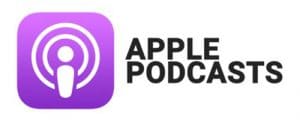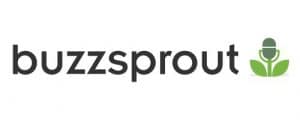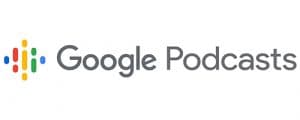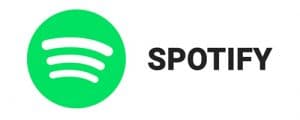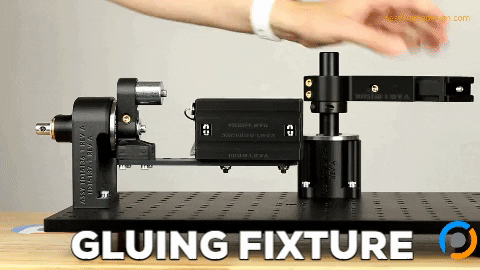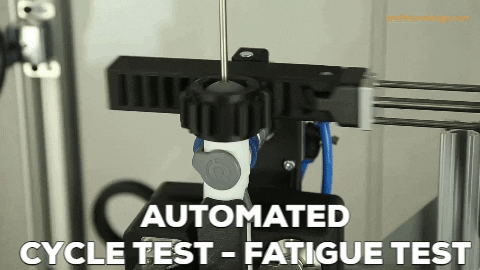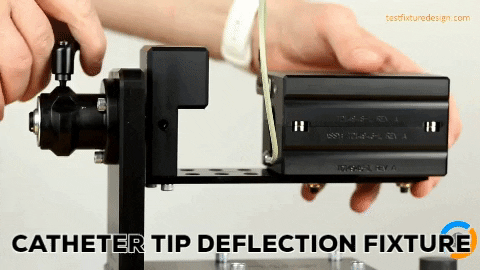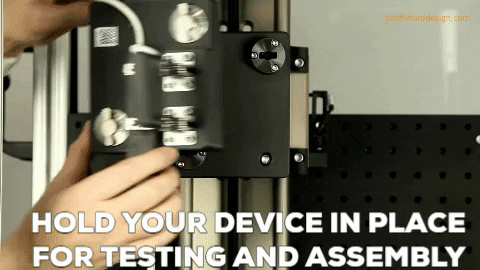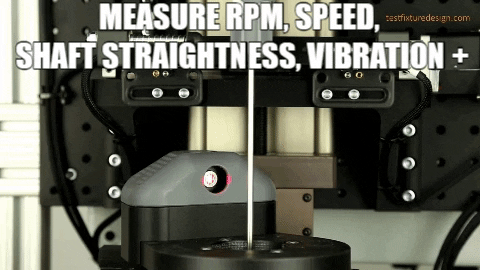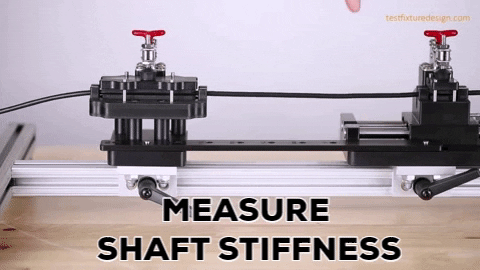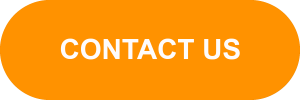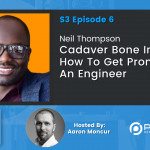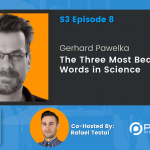Allison Peck | Leveraging Video To Advance Your Engineering Career, Show vs Tell, & When to Go With Your Gut
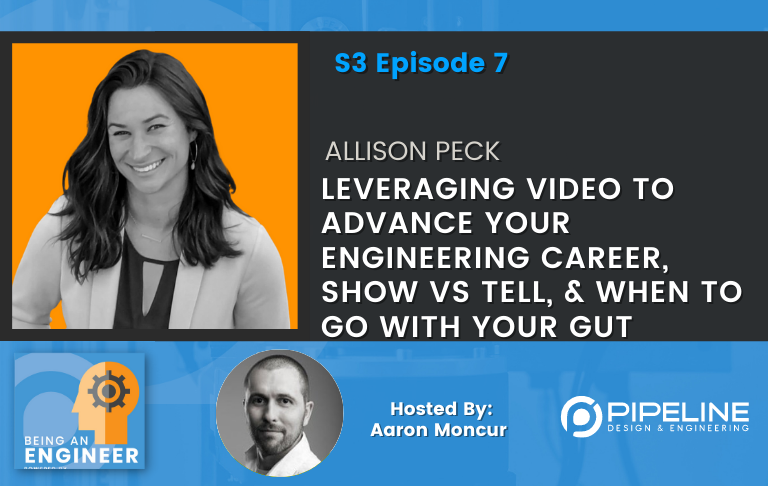
Who is Allison Peck?
Allison Peck holds both bachelors and masters degrees in biomedical engineering from Cal Poly and currently works as a Sr. program manager at a startup where their team is revolutionizing cell therapy manufacturing. She also has a passion for the medical device industry, and sharing career advice relevant to US tech jobs and contributes to the engineering community through her TikTok and LinkedIn profiles.
EXPAND TO VIEW EPISODE TRANSCRIPTION
SUMMARY KEYWORDS
engineer, people, question, videos, learning, linkedin, company, allison, designed, career, startup, manager, tick tock, gut, tik tok, da vinci surgical, talk, tool, grew, life
SPEAKERS
Presenter, Allison Peck, Aaron Moncur
Presenter 00:00
The being an engineer podcast is a repository for industry knowledge and a tool through which engineers learn about and connect with relevant companies, technologies, people, resources and opportunities. Enjoy the show.
Allison Peck 00:16
Not your typical hero origin story, but my parents went to see a psychic and the psychic told them that their oldest daughter me would grow up to become an engineer.
Aaron Moncur 00:42
Hello, and welcome to the being an engineer podcast. Our guest today is Allison Peck, who holds both a bachelor’s and master’s degree in Biomedical Engineering from Cal Poly. Allison currently works as a senior program manager at a startup where their team is revolutionizing cell therapy manufacturing. She also has a passion for sharing career advice relevant to us tech jobs. Alison, welcome to the show.
Allison Peck 01:08
Thank you, I’m really excited to be talking with you today.
Aaron Moncur 01:11
Me as well. Okay, so you have this really active social media platform where you share career advice, and I definitely want to dive into that later on in the show. I think I’m gonna save that for the second half. And during the first half, I’d like to talk about Allison Peck as an engineer. So with that, what made you decide to become an engineer?
Allison Peck 01:32
Well, it all started when I was about five years old. Not your typical hero origin story. But my parents went to see a psychic and the psychic told them that their oldest daughter, me would grow up to become an engineer and work in a male dominated fields. And so my parents came home with that psychic information and told me and I grew up knowing that that was my path in life. And I often wonder whether that is truly why I became an engineer or if the psychic was right, I really had a knack for it.
Aaron Moncur 02:06
That that is a wild wild story. And I have never received that answer before to that particular question, right? You hear a lot of talk about Legos and taking apart cars and fixing cars and things like that. But I have never heard a psychic told my parents that I was going to be an engineer, I’ve got to say that’s probably one of the that’s probably the most interesting answer that that I’ve received to date for that particular question. So kudos to you, I guess, kudos to your parents really for that. Right. And, and the psychic. So you said that you grew up knowing that you were going to be an engineer? Did you really feel that way inside? I mean, it wasn’t like this visceral connection that you had to engineering your whole life?
Allison Peck 02:46
Actually, yes, my dad was a construction worker. And my mom was an artist, and a teacher and the marriage of the two growing up, I would work in my garage with my dad with tools, you know, hammering two pieces of wood together. And then my mom would give me paint brushes, and I could paint on them afterwards. And so the design element of seeing something in your mind, putting it together and seeing it come to life and then making it your own. I really grew up with that framework. And so yeah, I do think so.
Aaron Moncur 03:18
Yeah, that’s excellent. How do you think having an artist for a mother influenced you as an engineer?
Allison Peck 03:26
Well, I think a lot about left brain, right brain. And I think this is how its, its structured, is it left brain is very logical, critical thinking right brain is more creative, emotional. And I actually think that it was a great thing growing up having an artist mother because she really nurtured that right brain side of me. And I have worked with a lot of engineers that are purely left brain, and they’re very smart. But sometimes they’re tough to work with and the right brain side of people, it’s more soft and charismatic and personable. So I think it made me a pretty well rounded.
Aaron Moncur 04:00
Yeah, yeah, that’s great. Well, you work for a startup in San Francisco right now, what can you tell us about startup life and. And beyond that the startup for which you work is in San Francisco, but you actually work remotely quite a bit of the time, and more remotely than maybe a lot of us are used to? Maybe you can talk a little bit about that?
Allison Peck 04:25
Sure. So first, to answer your question about startup life. I worked for a startup in 2012 2013 outset medical in San Jose, that was right out of college. And it was actually pretty rough. It was a wonderful company to work for. But I didn’t feel like I had the tools in my tool belt and the skills and the experience to really make an impact immediately at that company. So it was really me being a sponge and learning a lot absorbing information from the more senior engineers. This time around. I’ve worked for a couple bigger companies and so this time around at a new startup. I feel like I can really hit the road. I’m running make an impact, and I know what is needed where and when. So I really appreciate that trajectory of my life. And I didn’t back then in 2013, it was really hard for me to be at the beginning, I like to be the best at what I do. I’m very type A personality. So now I feel like I’m starting to be very good at what I do. And so I, I’m having a good time, and then working remote. I really like working remote. It is tough sometimes. Because I think relationship cultivation and relationship management is really important for work and those face to face, you know, watercooler Hallway Conversations are important. But in the wake of this, you know, great resignation, whatever you want to call it, this shift in, in corporate paradigm, I’m seeing that instead of people making their life fit around work, people are making work, work fit around their lives, almost like a hobby. So it’s interesting. It’s an interesting time.
Aaron Moncur 06:05
No, I was gonna ask you a question. And I forgot it. It was a really good question, too. Let’s see, oh, I know, I know what it was. Okay, let’s say that I am. I’m just getting started as an engineer working at a startup. And I don’t have the benefit that Allison has of having done this in the past and, and learning from my mistakes, or from my triumphs even what might you say to an individual who’s just starting to work at a startup that you didn’t know, back then that you know, now and you wish you had known back then?
Allison Peck 06:40
So you’re asking me what advice I would give? That’s right. So I think that the ability to think critically, is absolutely the most important skill an engineer can have. And
Aaron Moncur 06:54
is that specific to being at a startup? Or is that just in general?
Allison Peck 06:58
Um, I think it’s in general, if you’re looking for an answer that’s specific to being at a startup. So oftentimes, a bigger company is a very safe space to ask what somebody might consider a stupid question. But at a startup, it’s a little more fast paced and dynamic. And some people might feel like it’s, there’s no time to ask stupid questions. And so the the piece about thinking critically, I would, before you ask a question, if you’re just your first time you’re working at a startup, if you have a question, and you think it’s a dumb question, try to rearrange the question in your mind and think critically about how you could phrase it in a smart or intelligent way. And you will accelerate your career by by reframing your mind to think critically and asking what you might think is a stupid question in an intelligent way.
Aaron Moncur 07:51
That’s a great, great way to say it. I had a college professor who used to say, you know, you always get the kids in college who raise their hands and preface their question by saying, this is a dumb question, but which always drove me crazy. Why are you asking if it’s right? Right, my professor would, you know, he didn’t suffer fools. And so anytime someone said that, which didn’t happen very often, right, and happened once and then that was kind of it for the semester. He would say, No, no, no, no, no, there are no dumb questions, only dumb people. And it was hilarious.
Allison Peck 08:20
I mean, often, oftentimes, I find that if somebody says, I have a dumb question, and then they ask a question, I know, there’s somebody else in the room that is also wondering that and kudos to the brave person that asked it because now everybody gets to hear the answer and benefit from it.
Aaron Moncur 08:35
Very true. Very true. Yeah. All right. You are a program manager right now, what is the day to day like of an engineering program manager?
Allison Peck 08:46
Okay, so imagine you have a bunch of cats. And I know where I’m going with this. Cat cats need to achieve a goal by a certain, a certain date. And imagine that the cats all speak different languages, and they will have approached from different worlds. Yes, and some of them are 10 year old cat lovers. Yes, different cultures, different types of cats. Some of them are one year old cats. So what I do is I help the cats talk with each other. I help the cats understand what the goal is. And if anybody has questions about the timeline, I help quantify the why or try to help people understand why we need to get not the people, the cats I hope the cats understand why we need to get here by this date. And what happens if we don’t. And just helping people that speak different languages come from different backgrounds, maybe have experienced in different areas or industries come together speak the same language and work toward the same goal together. So I am essentially, program managers are essentially the glue that holds different departments together and brings everybody along on the same timeline of the product or service. grant.
Aaron Moncur 10:00
That’s a wonderful analogy, right? Everyone’s familiar with the analogy, herding cats. So that just that works perfectly. I love that. All right, we’re going to travel back in time, just a little bit to one of your previous roles. And you worked for a company called Intuitive Surgical, where the Da Vinci robot is manufactured. In particular, you worked on the alpha, beta and gamma builds of the SP Da Vinci Surgical System. For those of you who don’t know what that is, I highly encourage you to go out and just go to YouTube and type in SP Da Vinci Surgical System. It’s an amazing surgical tool, robotic surgical tool. So Allison, what can you tell us about Da Vinci in general and also specifically about the the SP platform?
Allison Peck 10:50
Yeah, so I loved my my five years working for intuitive it was such a good experience. And I really grew into myself as an as an engineer and program manager, that’s when I did my transition. So the Da Vinci Surgical platform is a wonderful tool, as you said, because it allows and enables surgeons to perform minimally invasive surgery, trans orally transept dominantly, transiently, and instead of leaving a big scar, you leave for the multi port system, you leave a couple small incision scars. For the single port or SP system, there’s only one site for surgery, there’s one hole. And if you can imagine four or five snaking wrist instruments going inside that hole, and all, you know, triangulating to cut out a tumor or so somebody up. It’s just amazing. The videos are incredible. Like you said, YouTube, you know, you can see somebody doing surgery on a great, that’s a really popular one. So the Da Vinci platform is incredible. And yeah, it was really wonderful working there. I started out there as a manufacturing engineer, I learned all about what it means to bring up an assembly line train technicians create manufacturing process instructions. What designed for assembly really means I learned about part inventory, and part shortages in line down situations. And it was just incredible. And at one point in time, I realized, you know, engineering might not be for me, I really didn’t feel like I was leveraging my my friendly, outgoing personality, you know, working at my desk, working in SolidWorks, working on the manufacturing line in a lab coat all day. And so I talked to my manager at the time, and I said, You know what, I think that I’m not supposed to be an engineer. And my mom cried. And
Aaron Moncur 12:42
in a scary conversation,
Allison Peck 12:46
it was very scary. So my manager at the time, he’s great. He’ll probably listen to this. Hi, Steve. He said, You know what, I think it’d be great. As a program manager, you’re great at tracking status of projects, you’re great with time management. And you’re really good talking to people and understand gleaning information from high level conversations, I think you’d make a great program manager, I actually know of an open position at this company. Do you want me to recommend you for it? And that is how I got into program management.
Aaron Moncur 13:16
Interesting. Very cool. Well, how lucky you were to have a manager who recognized those skills in you.
Allison Peck 13:21
Yep. Yep.
Aaron Moncur 13:23
While you were at intuitive, so you mentioned a couple of things that you did. They’re doing CAD working, helping bring bring up manufacturing line supply chains, support, things like that. Can you think of one of one of the bigger challenges that you and your team face then? And how you overcame that challenge?
Allison Peck 13:46
Hmm, a challenge that my team faced, you know, it was challenging some times. So do you want something technical or more general? Up to you? Okay, I have, I have an idea of what I want to what I want to talk about. So company growth is really interesting. Our company was growing a lot in my time there. And I think company culture is very important. It’s a good indicator of of future revenue and company health in general. So it was interesting to see the changes and the struggle that came along with the growth of a team and that the growth of the department changes in leadership, people coming and going and onboarding new people and sharing information and seeing things from a new person’s perspective. And sort of challenging the status quo like, hey, this person is new, and they’re, you know, we’ve been doing something the same way for five years. But they bring up a really good point. Maybe we could do it differently. Are we open to that? So staying open minded during company growth, I’d say was a huge challenge for a lot of people, especially me,
Aaron Moncur 14:53
hmm, staying open minded during company growth. So something had been done the same way for years and people are kind of stuck in that that mindset I see. That makes a lot of sense we’re going through, I’d say something similar here, we’ve we’ve had a lot of growth lately, we’ve been hiring a lot of people. And it’s interesting to see how the the culture, the dynamic, it can change really quickly. If you’re not, if you’re not on top of that, you know, managing the culture change and something, we’re still trying to figure out the best way to approach your pipeline.
Allison Peck 15:27
Always a struggle, there’s no equation for it. And it’s different at every company. And it’s hard to get in front of really, because you can’t really force culture, you can, but it’s not. So, yeah.
Aaron Moncur 15:40
Yeah, well, this is probably a good place to take a very short break and share with the listeners that Team pipeline.us is where you can learn more about how we help medical device and other product engineering or manufacturing teams, develop turnkey equipment, custom fixtures and automated machines to characterize, inspect, assemble, manufacture and perform verification testing on your devices. We’re speaking with Alison Peck today. So let’s let’s transition from Alison, the engineer to Alison the, the influencer, can I call you an influencer? Is that an appropriate term to use?
Allison Peck 16:15
It’s a little weird, but sure you can me that.
Aaron Moncur 16:18
Okay. How did you get into giving career advice?
Allison Peck 16:23
So I attribute it to my husband’s his vision for my potential that I couldn’t see at the time. So my husband is the most wonderful man. And I really appreciate what he sees in me. And he is a expert at marketing and branding and personal branding. And he said, Hey, I think it’d be really cool if you started taking, being proactive about your own personal brand. And I said, what is that? And he explained it to me, you know, it’s, it’s your reputation. It’s what people say about you, when you leave the room. It’s how people feel about you after you leave the room. And he said, I think it’d be really cool if he started posting on LinkedIn. And I said, Really, but that’s a scary, but I’ll do it. And I trusted him. I started writing some posts on LinkedIn. And he said, Yeah, your energy is so cool in videos, you should do some videos, and I went, Okay, so I started making videos on LinkedIn, and Platt, different social media platforms are interesting. I started getting lots of requests, requests from recruiters, you know, Hey, are you interested in this open role? So I noticed that it was having an effect immediately. And I thought, hey, this is great. And it started opening a lot of doors for me. But I didn’t feel like I was really reaching the the audience that I wanted, I was reaching recruiters, I want to help engineers, and I want to help program managers and anything in between. I want to help them learn from the mistakes that I made. So that me working hard, you guys can work smart from learning from the mistakes that I made in my career. So I’m posting every single day for one year on LinkedIn, got me 2000 followers, every day, every day is a big commitment took a lot of bravery to I was embarrassed a lot of the time major imposter syndrome. But my husband was my cheerleader, he kept me going. So then I thought, you know, LinkedIn, it’s a little slow. Let me let me try tick tock this new app called tick tock, I got in six months, 400,000 followers, I had a couple of videos, and it feels so good to be able to reach a lot more people. So I’ve let LinkedIn go a little bit. It wasn’t really the greatest platform. Sure. For what I wanted to do.
Aaron Moncur 18:41
What, what were one or two of the most viral? Or what was the content in one or two of the most viral Tiktok videos?
Allison Peck 18:49
Okay, so I have, I actually did go viral once on LinkedIn. So that was a cool one. So one time I was I wrote about this one time I was in an interview, I was interviewing for a job as an engineer. And you know, at the end of the interview process, they ask you, okay, can you give us three references, we’ll check references, I said, Sure. Here are three people, they can speak to my character, and my, my professional abilities. And the guy the types of great I’ll call your references, here are three of my references. So you can talk to women, specifically, female engineers who have worked for me and you can ask them anything you want. They know that to expect your call. And I said, Whoa, that has never happened to me before. Yeah, thing. So on LinkedIn, and that got 5 million views. Lots of lots of weirdos in the in my DMs you know, 5 million was a big reach. Another viral video I had is my most viral video got 15 million views on tick tock. And that’s where I shared a little piece of advice on having difficult conversations. This was in relation to exit interviews. This video He went viral partially because a lot of people had never heard of exit interviews. But what the video was saying is that when you’re having a difficult conversation, instead of placing blame on somebody, when when you’re talking about an issue or confrontation, you should use AI language. So instead of saying, I’m leaving your company, because you have bad managers, instead, you can say, I’m leaving your company, because I really value leaders and managers who are empathetic and good communicators. And I didn’t find that at this company. So that using AI language instead of you language, just a communication tool that I learned in therapy long time ago. So that went viral, and mostly went viral, because people were arguing in the comments on whether I was right or wrong. So we love it when people argue in the comments for the algorithm,
Aaron Moncur 20:48
I think that’s great advice. There is something about using the word you that you have to be really careful about right because it can come across as is almost combative in in the wrong context. And even if you’re not aware of it, it’s really easy for that to be taken in the wrong way by whoever you’re speaking with.
Allison Peck 21:07
Absolutely.
Aaron Moncur 21:10
Tick tock is one of your you’re probably your your most preferred platform, it seems like do you use other platforms as well? You mentioned LinkedIn, are you doing like Facebook or Instagram or anything like that?
Allison Peck 21:25
You know, I think that Facebook is dying. And so I did not choose to do Facebook. However, I did go on Facebook the other day and saw that that same video with the use I use I versus you language went viral on Facebook, no way somebody else posted of me. So I am on Facebook, but not by my own design. So that’s right. Um, it was interesting reading those comments. And then let’s see, I’m attempting to do Instagram, but I also think Instagrams kind of dying. I see a lot of reposts of Tik Tok videos on Instagram. So not super excited about Instagram. I am trying YouTube. I have a YouTube channel. It’s called Ali and Rico and my husband and I share it together. He talks about marketing, I talk about professional career development. We only have about 450 followers, it’s kind of hard to gain traction on YouTube. But I would love to monetize with YouTube someday. So yeah, I’ll probably put more effort into that one.
Aaron Moncur 22:27
Yeah. Do you Do you do any private coaching? Or is it basically just whatever the content is online that you share with everyone,
Allison Peck 22:36
I do some private coaching. So I would like to reach as many people as possible so that I can help and have just as broad an audience as I can. And I put my email address. So actually, I’ll backup the way Tik Tok works is if you’re following me, but I’m not following you. You can’t message me. And I’m following like 60 people, and it’s all celebrities. So of course, they’re not gonna be talking to me yet. Yeah. What I did, right. But I did put my I was curious about the career coaching thing like is this what I like this, doing one on one stuff with people. And so I put my email address in my tic toc bio, and I said, contact me with any career coaching questions. And I got a lot of bites. And I’ve had lots of one on ones with people. And I’ve heard some crazy horror stories about people’s career situations. And it’s kind of opened my eyes that you know, I’m very privileged and lucky with the career path that I’ve had a lot of people have struggled. But I did have one longer term client. And she was wonderful to work with. She needed a job in order to maintain her visa. She was from overseas. And so she had a really aggressive timeline for her job search. And I was not able to help her in the ways that she needed, and she was not able to get a job before her visa expired. And that hurt so bad for both of us. Yeah. I think she learned a lot, but that kind of scarred me. And I didn’t feel right, charging her money when I wasn’t able to help her accomplish her goal. So I kind of backed away from the coaching thing. I got a little too emotionally invested. And so I’ve kind of stepped back and started to do more of the broad just pushing out content instead.
Aaron Moncur 24:32
Yeah. Okay. I want to talk about social media just a little bit more, because I’m guessing that there are other engineers out there. Very similar to me who are entirely social media illiterate, right? Tick tock. What is that? I mean, honestly, I probably even wouldn’t even know what it is if my wife hadn’t showed me some videos on it. So why should or maybe the question is, should engineers be using social media? tick tock LinkedIn, Facebook, whatever is there? Is there value for engineers in their career to be on these platforms?
Allison Peck 25:08
Absolutely, in one specific way. Everybody talks about networking. But screw networking, here’s what I think engineers should be doing on social media. So you know, you have a resume that says, I can do these things, and I have these skills. And then you interview and you try to convince the interviewer I, you know, I have this experience, and I have these skills. It’s so much more powerful when you can show somebody, I have programmed this microcontroller to light up these LEDs, or, I have designed this gear train for my bike. And this is a video of me riding my bike. I see videos very rarely a little more often lately, but I see videos on LinkedIn, Tik Tok Instagram, where engineers have designed something and built it and are showcasing it. And I think that is way more powerful than any resume, then any interviewing skills you might have. Show versus tell resume, you’re telling somebody how good you are at something, interviewing you’re, you’re telling somebody, but a video of you doing something is 100 times more powerful, it’s proof that you can do what you say you’re going to do. And so I envision a world where as a hiring manager, I was just promoted at my company. And now I’m, I’m hiring for my team. And I interview a lot, I envision a world where I can look through a social media platform, scroll through videos, and find a video of somebody doing something that I need to be done on my team. And I can reach out and say, Hey, are you looking for a job? You have a video doing exactly what I need you to do? Are you interested?
Aaron Moncur 26:44
That’s a great idea. I love that world. Yeah, I mean, thinking, as an employer, myself, I don’t care so much about where you went to school, or what your GPA was, like, none of that stuff really means a whole lot, you know, show me what you can do. And Allison, you make a terrific point, a great way to show person, what you can do is to actually show them right with a video. That’s that’s a terrific idea.
Allison Peck 27:10
And if you’re not comfortable doing that, because it takes a lot, a lot of companies to do that. What you can do, here’s a little trick that I like to see in interviews, usually in zoom interviews nowadays are just two people showing their video talking to each other 30 minutes. But I think it’s really cool when somebody shares their screen, and shows me, hey, this is a spreadsheet I made or like, Hey, this is a picture of a thing that I designed her, Hey, this is a 2d drawing of a CAD model that I made last week. If you don’t want to make videos and put yourself out there like that, because it’s scary, sometimes, you can do that in an interview. And you can show that way. Also, instead of just telling somebody you’ve designed something, you can show it by sharing your screen. Yeah,
Aaron Moncur 27:52
yeah, resumes her out everyone, nobody cares about the resume anymore. show something real
Allison Peck 27:57
and cover letters to nobody, like nobody reads a cover letter? No, it is.
Aaron Moncur 28:02
Alright, what are a few of the mistakes that you see engineers making most often that that limit their growth or advancement in their careers and companies?
Allison Peck 28:14
Let’s see. Confidence is one.
Aaron Moncur 28:19
Confidence. So you saying like, fake it till you make it kind of thing?
Allison Peck 28:23
Yeah, or know your limitations know what you can do and know what you can’t do? And
Aaron Moncur 28:28
don’t be overly confident is more what you’re saying?
Allison Peck 28:31
Be confident, be appropriately confident, and, and shine where the light is?
Aaron Moncur 28:38
Yeah, that’s gonna be hard for engineer. What is appropriate mean, to give you a binary? You know, zero to 10 word?
Allison Peck 28:44
Yeah, that’s a good question. Um, let me think about this. So there’s, there’s a quote
Aaron Moncur 28:50
that I love that’s very applicable, I think, to what we’re what we’re talking about right now. It says, When in doubt, assume your right decisiveness is productive. I love those words, I think they’re, they’re their truths to live by.
Allison Peck 29:05
Yeah, you know, okay, along those lines, some advice I would give, and some mistakes that I see often are that people make decisions from their gut or from their emotion. engineers from their gut, mostly not so much from their emotion. But I would say before you make a decision, anticipate that somebody is going to question it and have data in your back pocket to back it up. That’s where I see engineers fall flat sometimes is they they’ll say I recommend this, but they don’t have a because behind it, so no, no, why you’re making a decision and anticipate that somebody is going to question it and be able to stand up for yourself and have confidence because you have data to back it up.
Aaron Moncur 29:49
That’s great advice. I want to take a little tangent there. I can’t remember where I read this. It was some behavioral psychology book or something like that, but they’re talking about going with your gut making decisions based on your gut feeling and how sometimes that can be a good thing. Other times it can be a bad thing. So when do you how do you know when it’s, it’s a good idea to use your gut versus when it’s a bad idea. And what what these researchers found was that if it’s something that if it’s an environment that you’re very familiar with, you know, something that you’ve done for years and years and years, you have lots of experience, typically going with your gut is a good idea. But if it’s in a new environment, where you don’t really know what you’re doing, going with your gut is generally not a good idea.
Allison Peck 30:30
I agree with that. And I think years of experience, and data collection can inform your gut, and you can exercise and strengthen the gut, as you’re saying, and so that you can trust it. Yeah, yeah.
Aaron Moncur 30:46
What, What’s the best part of your job?
Allison Peck 30:51
Um, to be honest, working with my manager, he is empowering, he has my back, he trusts me. He doesn’t micromanage me in any sense of the word. And I really didn’t know what I could do. Until I worked for him. He has the best management techniques I’ve seen out of anybody. And I think that met that makes a world of difference. That’s, that’s my favorite part.
Aaron Moncur 31:23
For sure. All right, I’ve just got maybe one or two questions left, and then we can we can wrap this up? How has failure shaped your life?
Allison Peck 31:33
Well, failure. I mean, I think that failure and learning are synonymous, they can be if failure can be productive in that way. So failure. First of all, if I had never failed, I would have no content to make on social media. Oh, my content is, hey, I have messed this up before, let me show you what I’ve learned. So first of all, I would have nothing interesting to say. Second of all, it’s added an aspect of humility. And the dance between humility and confidence as an engineer, and now as a program manager, it’s a fine line, you know, understanding what my limits are, understanding what failure looks like, and how it can be productive, you know, on the road to your awakening, or your growth or wherever you’re headed. I embrace failure. And I love the phrase, fail early and often. And I think failure is a wonderful thing. It hurts in the moment. I had a failure moment this week. And it was a rough day, I gave somebody some false information on accident. And they caught it. And I promised it wouldn’t happen again. But it was a rough day, I’d beat myself up about it. And then I read a quote. And the quote, kind of helped me reframe my mind. And I saw it as a learning opportunity. And I appreciate the life, the life that I’m living this week, that I was able to make a mistake in a safe environment and learn from it. So I embrace failure. It’s hard, though,
Aaron Moncur 33:16
isn’t that amazing? How your mindset can change? I don’t know if so easily is the right way to say it. But I mean, you know, externally in the physical environment around you, nothing changed, right? You just read, you looked at these letters on a page somewhere, and they were meaningful enough that the circuitry in your brain was temporarily rewired in a way that allows you to be happier come to terms with or Yeah, move forward. Anyway, it’s pretty amazing.
Allison Peck 33:43
Yeah, the phrase, I think I can remember the quote, the quote, that helped me reframe my mind. And understand that this failure was a lesson in learning is I accept myself completely here and now. And I I acknowledged that everything I feel think, say and do is is a necessary part of my awakening.
Aaron Moncur 34:03
Hmm, amen to that. Yeah. All right. One, one more question here. And then we’ll wrap up, can you think of a time when you wanted to give up because whatever you were doing was was just too hard. But you didn’t give up? And then you know, share? Why, why didn’t you give up and kind of like, what what did you take away from that experience?
Allison Peck 34:28
Um, you know, I, I do not give up easily. And so, not often, am I finding myself in a position where I’m questioning giving up? I have trained myself to believe that giving up is not an option. changing directions can be an option. If there’s good reason, and it makes sense. But I don’t really I mean, I guess grad school, I guess grad school was pretty hard. I wasn’t a good test taker, I had a straight CS probably. And in grad school, you have to maintain B averages. And so I almost failed out of grad school because of my grades. And I thought about giving up I guess back then, and I mean, they would have been a huge waste of money, because I had already taken out student loans. So I decided not to give up. That’s honestly what kept me going was just the idea of paying off the loans and not having the degree. So I think if you can have a strong why I don’t think that’s the strongest why I mean, making a difference in the world becoming an engineer designing things might have been a stronger why but if you can find a strong why that motivates you through challenging times doesn’t really matter what it is fine. They’ll help anchor you
Aaron Moncur 35:52
work hard to make a huge difference if you’re saddled in debt. So strong enough why Yeah, great. Well, Alison, where can people find your or how can people get a hold of you?
Allison Peck 36:03
I would say LinkedIn is the best way. I am sad to admit that I got LinkedIn probably 20 times a day. I’m talking to a lot of people on there. I’m posting a lot more again, just because I miss it, actually. So LinkedIn is a great way My name is Allison Peck, a ll i s o n p e c k. And also, if you find me on Tik Tok, my handle is at Ali from corporate zero. And my email if you can find it is in my bio on tick tock. So you can email me you can send me a private message on LinkedIn. I’m happy to talk with anybody.
Aaron Moncur 36:37
Awesome. All right. Well, Alison, thank you so much for joining me today. It’s been a delight getting to know you and talking a little bit. I really, really appreciate your time.
Allison Peck 36:46
You as well. Thank you for having me.
Aaron Moncur 36:50
I’m Aaron Moncure, founder of pipeline design, and engineering. If you liked what you heard today, please share the episode. To learn how your team can leverage our team’s expertise developing turnkey equipment, custom fixtures and automated machines and with product design, visit us at Team pipeline.us. Thanks for listening
We hope you enjoyed this episode of the Being an Engineer Podcast.
Help us rank as the #1 engineering podcast on Apple and Spotify by leaving a review for us.
You can find us under the category: mechanical engineering podcast on Apple Podcasts.
Being an Engineer podcast is a go-to resource and podcast for engineering students on Spotify, too.
Aaron Moncur and Rafael Testai love hearing from their listeners, so feel free to email us, connect on Facebook, Twitter, Instagram, and subscribe on Apple Podcast and Spotify!
About Being An Engineer
The Being An Engineer podcast is brought to you by Pipeline Design & Engineering. Pipeline partners with medical & other device engineering teams who need turnkey equipment such as cycle test machines, custom test fixtures, automation equipment, assembly jigs, inspection stations and more. You can find us on the web at www.teampipeline.us.
***
Valued listener, we need your help getting to 100 podcast reviews. Win a $50 Amazon Gift card if you leave us a review on the Apple Podcasts. Simply email a screenshot of your 5-star review to Podcast@teampipeline.us, the email will be in the show notes. We will announce 5 lucky winners at the end of the first quarter in 2022.
You’ve read this far! Therefore, it’s time to turn your headphones up and listen now to this episode to learn all these. Don’t forget to tell your friends who might like this too!

